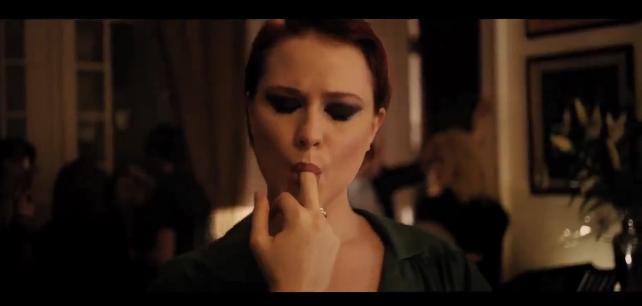
Slut shaming is more than a buzzword. It’s female sexuality weaponized against women. Or at least that’s what it used to be. The word “slut”, and other colorful terms that are generally used in a similar vein, is increasingly becoming a general term for any woman one may find reason to insult, regardless of her sexual history and experience, either real or imagined. The latest high profile example of this is the case of Mo’ne Davis, the first female little league pitcher to lead her team down a trail of victory, and the Bloomberg University athlete who was subsequently dismissed from his team after he infamously tweeted: Disney is making a movie about Mo’Ne Davis? WHAT A JOKE. That slut got rocked by Nevada. Two things happened after this story broke. Davis gained positive publicity for writing an email to the Pennsylvania school requesting they take the student athlete back onto the team, and the now former student athlete apologized profusely. The level of attention attached to this particular case meant swift action, and a problem solved. Except that the larger problem was never examined in any impacting way.
One way to address the general attitudes that sustain this sort of slut shaming is to ask questions. Questions like why a college aged man would feel the need to call a 13-year-old girl a slut.
We live in a patriarchal society, and this societal structure affects the fundamental building blocks on which both public and private opinion stand. Slut shaming, which traditionally takes a private matter and turns it into a public spectacle, works because it has always been allowed to work. A woman or girl is called a slut, and the person hearing responds by wondering what that woman or girl has done to merit the title. There is rarely any thought behind why someone in a position to be listened to would be targeting that specific woman or a girl.
So why does this slanderous level of insult and lack of disdain for it go on? Boys will be boys. It may not ever be said overtly, but sometime in the span of boys being boys, they grow up to be men with very particular ideas about women, the female body, and female sexuality. These ideals are passed along, not just from fathers to sons, but also to daughters who may one day become mothers. These ideals persist that women’s bodies are meant only for the male glaze and pleasure. A man sleeping around is satisfying himself while a woman sleeping around is satisfying men.
The 2013 Sundance Film Festival debut of Fredrick Bond’s Charlie Countryman featured violence at the level of gore which today’s desensitized viewers have grown accustomed to, its fair share of female nudity, and all sorts of scenes that could be categorized as material that could make audiences uncomfortable. However, there was one particular scene that the watchdog organization, MPAA, deemed too much for potential viewers to handle. What takes place in this scene? A woman being pleasured orally by a man. As if we’ve never seen the reverse. The film’s female lead, Evan Rachel Wood, immediately came forward via Twitter after seeing the cut version of the film saying, amongst other things, that she found it hard to believe that had the female character been raped it would have been cut.
In her riveting documentary Hot Girls Wanted, which was a hit at film festivals like TriBeCa and Sundance, and is now making its way to Netflix, Rashida Jones explores the seemingly counter intuitive attitudes young girls now have about themselves and their sexuality, extending as far as sex work via the porn industry. The film is not against the industry as a whole, but does explore the current level of sexual openness that seems to meet and surpass the world’s expectations of young girls as sluts. When 1 in 10 children between the ages or 12 and 13 have made or been featured in sexually explicit videos, according to the UK based charity the NSPCC, this is needed exploration. One film, one dismissed athlete, and the unlearning of the belief that women have complete control over men’s perceptions of them are steps in the right direction, but we aren’t out of the woods just yet.
Slut shaming is bigger than name calling. The female perception of self is affected just as much as politics and art forms such as film. My own slut shaming experience happened prior to entering high school, I told the parent under whose care I was with and they responded by asking what I’d done to make the person say what they did; the fault could have only been mine. These attitudes filter into more areas of life than our general attitudes about sex. From the abortion conversation, to the way rape cases are so horrendously handled in the United States and abroad, what women have to say about what should and shouldn’t happen with their bodies tends to mean very little. It is hard not to find a story of rape being covered up at some university or another in today’s climate, almost as hard as it is to read or watch the news and not come across a story about some police officer killing an unarmed black person in America. Remember the story of the driving instructor who got away with raping a student on the grounds that she’d dressed too provocatively, in tight jeans? This happened in Italy in 1992.
– Ashley Jones for The Untitled Magazine


